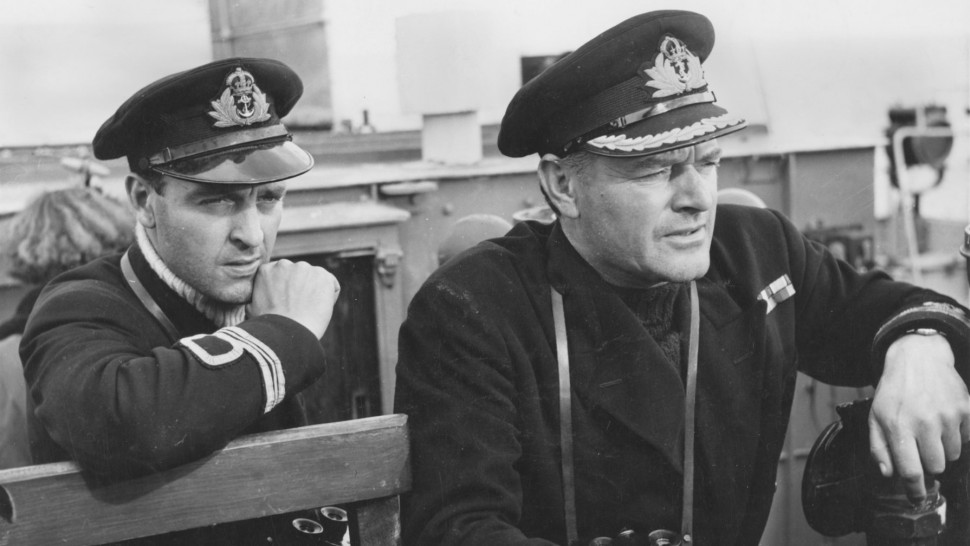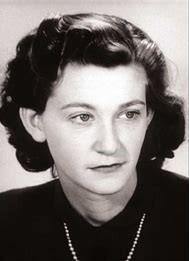
STUART MILLSON revels in British film music at the Proms
It seems unthinkable that a Proms season in peacetime would have to be abandoned, but this is almost what happened last year at the height of the Covid pandemic. With much-reduced orchestras – their players spread widely across an extended Royal Albert Hall platform in order to preserve social distancing – the BBC resolutely produced a Proms 2020, but with the stalls, arena, gallery and boxes of the great Hall empty. The Prommers had to content themselves with listening to the skeleton season on Radio 3, or watching the proceedings on BBC Four television. But it was better than nothing.
This year, audiences returned, but on the basis that concertgoers showed evidence of a double Covid vaccination, or a negative test for the virus. And even then, the famous Proms queues, the pre-concert drinks, atmosphere and general buzz of the season – little of what we understand by this remarkable and long-established music festival existed.

On the 2nd September your reviewer ventured into London to enjoy a Prom given by the 60-strong BBC Concert Orchestra, possibly the most versatile orchestra to be employed by the BBC – covering the classical repertoire (often lighter or more recondite works); show music and the songs of theatreland; and even touching upon jazz and pop. For my evening, the BBC CO conveyed its audience through the Odeon doors and into the world of British film music, beginning with Doreen Carwithen (real name, Mary Alwyn) and her overture to the 1954 film, The Men of Sherwood. What a good choice: asplendid curtain-raiser which immediately lifted the spirits of the 2,000 people present; the music immediately taking everyone away from their Covid concerns and back into a world of Lincoln green and derring-do. Carwithen’s overture was reminiscent of her better-known Suffolk Suite, an effective piece of scene painting – with rhapsodic evocations of the English landscape mixed with trumpets and brass, as men of valour meet in combat on battlements.
The programme notes for the evening tended to be a little sniffy about the quality of the film – underlining the point by reproducing the original theatrical poster from the time, and referring to “scrappily-drawn faux mediaeval title cards” and “an illuminated manuscript of the lowest wattage”. A trifle harsh, perhaps – given the general good intentions of the film-makers, who in those days at least tried to celebrate our English past. In fact, there is much reassurance in the mythical country evoked by the props and artwork on the 1950s. In our age of political correctness, it is encouraging that such images should have been dusted down and brought out before an audience.
Similar notions of the countryside and olde England were also found in one of the major items on the bill: Vaughan Williams’s Three Portraits from the England of Elizabeth, the result of the composer’s collaboration with nationalised British Railways. Just as the travel poster was used in the 1930s to inspire holidaymakers to head for the ‘Cornish Riviera’ or the breathtaking Lakeland, the 1950s embraced the technology of the in-house film unit – the perfect opportunity for composers to earn money quickly (instead of waiting for an orchestra to include their new work in a Festival Hall programme). And so, Vaughan Williams’s style – a gracious blend of Tudor-infused tone-painting, with the echo of the village green never far away – proved to be the ideal accompaniment to British Transport’s public information films. Yet played on their own in the concert hall (with the listener, perhaps not even aware of how they were commissioned or written), the ‘Three Portraits’ could very easily have been a short, long-lost folk symphony by Vaughan Williams.
Alan Rawsthorne, William Alwyn and Malcolm Arnold were also dominant figures in the film industry and it was fascinating to hear – live – Rawsthorne’s dark score to The Cruel Sea (1953) which starred Jack Hawkins and told the story of the Battle of the Atlantic. Rawsthorne is hardly ever played these days in his own native Britain, the Second Piano Concerto surfacing, perhaps, every 30 years at the Proms. It is high time for a re-evaluation of this masterful composer, capable of bringing a psychological sense of sea warfare and the limitless ocean into a conventional British war film.
Is there a tendency for film music to be bitty? Not so, in the case of William Alwyn’s truly large-scale symphonic contribution to the 1947 Carol Reed production, Odd Man Out – the tense, anguished story of an Irish nationalist (named Johnny McQueen) injured, and on the run through the mean streets of Belfast. Again, here is an example of music that could easily have been the first movement of a symphony: Alwyn conceiving large, heavily-woven expanses of ideas – with much complicated development, instead of simply relying on a simple, repetitive theme for the film-goer. A satisfying span of gripping, tragic proportions.

The most avant garde work of the evening was the Elisabeth Lutyens score for the 1965 Peter Cushing film, The Skull, made in 1965. Not afraid to produce haunting sounds, by using modernist techniques, Lutyens could almost be described as an English (female) Bela Bartok. A strange, disjointed, disharmony at the edge of tonality brings to life the occult world of Peter Cushing’s obsessive character, Dr. Christopher Maitland – the Proms programme editor finding a marvellous still from the film: Cushing staring into the eye sockets of the Marquis de Sade’s skull.
Finally, a complete change in mood – the BBC Concert Orchestra bringing the house down with the skittish score by Malcolm Arnold for The Belles of St. Trinian’s: a dazzling, tongue-in-cheek, belly-laugh of an extravanganza, complete with shifty ‘Flash Harry’s’ furtive schemes (played to perfection by the great George Cole); and all the unleashed anarchy of the worst girls’ school in cinematic Britain (headed by the ever-so-slightly alarming Alistair Sim as ‘Miss Fritton’). Arnold had the rare ability to match the mood of so many productions, from war stories to comedies, but succeeding in everything he did because of his limitless, lyrical self-confidence, mastery of the orchestra, and refusal to see anything in conventional terms. It is possible to say that without Arnold’s dizzying, barrier-breaking sound-world – music that is the equivalent of a downing a treble gin and tonic in the company of the best British comedy actors of the ’50s – The Belles of St. Trinian’s might not have been the classic that it became.
The BBC Concert Orchestra marched us out of the Royal Albert Hall with a rousing film encore – again by Malcolm Arnold, the unforgettable Bridge on the River Kwai, with conductor, Bramwell Tovey, making sure that everyone clapped and whistled along to that famous evocation of parade-ground swagger and cheerful British heroism, ‘Colonel Bogey’.

STUART MILLSON is a member of the Chartered Institute of Journalists. After more than two decades living in a Kent village, he crossed the River Severn and the Black Mountains, and now writes from West Wales.